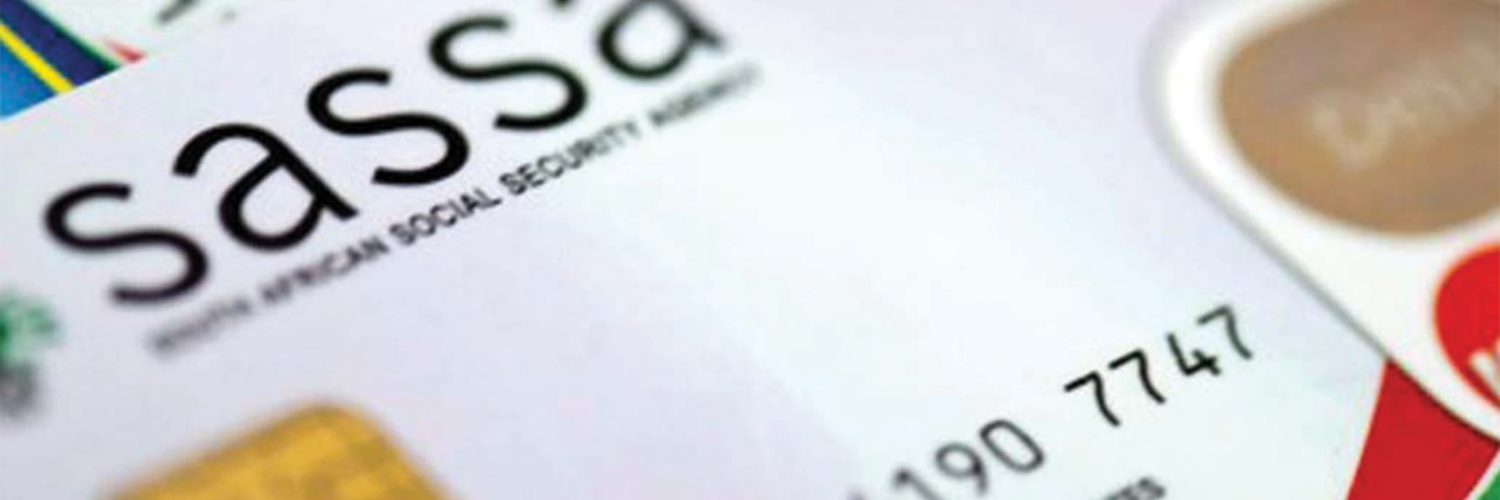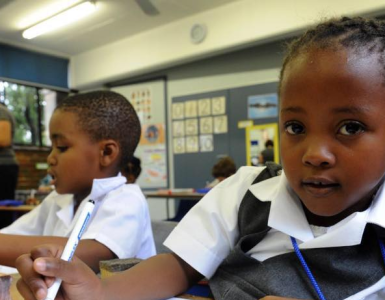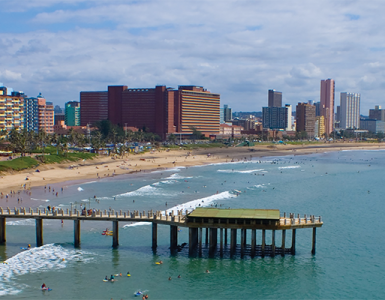AMENDMENT: Regulations restricting applications to online platform unconstitutional, court rules,,,
By Marecia Damons
The Pretoria High Court has declared some Social Relief of Distress (SRD) grant regulations unconstitutional.
This included the online-only application requirement, the R624 monthly income threshold, and the grant’s value.
Judge Leonard Twala ordered the government to progressively increase the grant to align with inflation and the cost of living. The judge said that gifts and once-off payments must be excluded from the income threshold.
Advocacy groups IEJ and #PayTheGrants welcomed the judgment, calling it a victory for South Africans and activists who tirelessly fight for better social assistance policies.
Regulations limiting the access to the R370-a-month Social Relief of Distress (SRD) grant were unconstitutional and invalid, the high court in Pretoria ruled this week. The court also ordered the government to increase the grant amount and the income threshold to qualify for it.
Introduced in 2020 as an emergency response to the Covid pandemic, the SRD grant was initially set to last six months but has been extended annually. The value of the grant was raised from R350 to R370 in April 2024. The grant is available to people who get less than R625 per month, with SASSA conducting monthly checks on applicants’ bank accounts to ensure they continue to meet this criteria. This often means millions of people receiving financial donations or assistance from friends and relatives, are excluded from receiving the grant.
In October 2024, the #PayTheGrants campaign and the Institute of Economic Justice (IEJ) challenged the government’s SRD grant regulations, arguing that these rules excluded millions of potentially eligible South Africans.
Among the issues raised were the exclusive reliance on online applications, the definition of income and financial support and the reduction of the income threshold for eligibility. They also asked the court to declare that SASSA’s failure to pay successful applicants the SRD grant, timeously or at all, was unconstitutional and unlawful.
Advocate Jason Brickhill from the Socio-Economic Rights Institute of South Africa (SERI), for the applicants, argued that the SRD grant’s regulations created significant barriers for vulnerable groups, particularly by restricting applications to online submissions. He said this excluded many people without access to smartphones, computers or the internet. He said that SASSA’S R624 income threshold test included “any income”, meaning those who received another grant on behalf of the beneficiary like the child support or disability grants, were automatically disqualified.
Advocate Gilbert Marcus, representing the National Treasury, argued that adjusting the SRD grant for inflation could impact the other seven social assistance grants. He said the SRD grant was meant to be temporary and cautioned that expanding it could undermine broader poverty reduction strategies focused on economic growth and job creation.
Marcus emphasised the government’s fiscal challenges, adding that expenditure exceeded revenue by R322-billion. After the National State of Disaster ended in April 2022, the grant was moved from the Disaster Management Act to the Department of Social Development’s (DSD) Social Assistance Act (SAA). New regulations reduced the monthly income threshold from R595 to R350, and limited applications to online submissions. Bank verification was also used to assess applicants’ financial means each month.
In his ruling, Judge Twala noted that the shift in regulations led to a sharp drop in successful applicants. From March to April 2022, applications decreased from over 15.8-million to 8-million and approvals fell from about 11-million to 5.6-million.
The number of successful applicants continued to decrease, with only about 8-million of 14-million applicants approved by March 2023. This reduction resulted in Treasury cutting its budget for the SRD grant from R44-billion to R36-billion in 2023/2024.
Twala agreed with the government that when public money was used to provide benefits to citizens, procedural safeguards were necessary. But he said that these must be “reasonable and fair”.
He said there was “no reasonable justification” to subject potential beneficiaries, “who are mainly poor and vulnerable members of society, to a solely online application process”. He agreed with the applicants that the majority of people with insufficient means to support themselves and their dependents did not have smartphones, access to computers and the internet.
Judge Twala noted that up to 15% of successful applicants did not receive their grant payments each month. “The respondents offered no defence for the non-payment of the SRD grant to successful applicants except to say that the system experienced some teething problems and that some of the successful applicants failed to furnish their correct banking information and cellphone numbers.”
“The SRD grant is meant for poor people and to alleviate hunger. For this group of society to not receive the grant timeously or at all has dire consequences,” Twala said.
He declared that the regulation restricting applications to an online platform was unconstitutional and must be amended to allow in-person applications.
The Judge also ordered that the definition of “income” be changed to include only regular payments from formal or informal employment, business activities, or investments, excluding once-off payments or gifts. (SASSA’s system is not currently implemented in a way that can differentiate between these categories and it is unclear how this can be done).
He ruled that the fixed income threshold of R624 per month was “unconstitutional and invalid”. He directed the government to “progressively increase the threshold” in a manner that takes into account “the right to social assistance, inflation and the cost of living”.
The ruling also found the grant value to be insufficient.
Judge Twala ordered the Social Development minister, in consultation with the Minister of Finance, to “devise and implement a plan to redress the retrogression in the value of the SRD grant and income threshold and progressively increase the value of the SRD grant”. This plan must be delivered to the court in four months.
This ruling has been welcomed by Gilad Isaacs of the IEJ, calling it a crucial victory for vulnerable South Africans. “The judgment refuses to allow the National Treasury to justify indignities visited on the most vulnerable by claiming that the enjoyment of our rights is unaffordable.”
Elizabeth Raiters, deputy chair of #PayTheGrants, said : “This is a great day not only for beneficiaries but also for the activists of #PayTheGrants who have been working tirelessly with no funding, no proper resources, only maybe a broken cellphone in their hands and some data. I hope the government can start working together with NGOs like #PayTheGrants … Hand in hand these issues can be solved.”
In a brief statement the Social Development said: “The Department is studying the judgement and will respond in due course.”
Mirror Briefs
COURT ACTION OVER BILL
The Democratic Alliance (DA), ActionSA, and the Freedom Front Plus (FF Plus), have announced their intention to challenge the Expropriation Bill, which was recently signed into law.
The Bill repeals the Expropriation Act of 1975 and establishes a new, unified framework for expropriation, in line with the Constitution. It aims to provide clear guidelines for the processes and procedures governing the expropriation of property by state organs.
President Cyril Ramaphosa signed the Bill into law last week, stressing that the new framework requires authorities to engage in negotiations with property owners and use mediation or judicial processes to resolve disputes.
The DA has expressed serious reservations about two key aspects of the Bill. Party spokesperson, Willie Aucamp, elaborated on these concerns, highlighting potential risks and unintended consequences for property rights.
FF Plus leader Pieter Groeneweld has stated that the party will challenge the constitutionality of the Bill in the Constitutional Court, arguing that it undermined property rights and could lead to negative economic consequences.
African National Party chief whip, Mdumiseni Ntuli, said contrary to the propaganda and fear mongering, this law was not an attack on certain groups. It was rather about inclusion and recognised the diversity and historical injustices suffered by the majority of black South Africans under colonialism and apartheid. – Lehlohonolo Lehana
GOVT. OFFERS BURSARIES.
Deputy President Paul Mashatile has announced that government will provide 50 bursaries for deserving students who have been accepted into public institutions of higher learning, including Technical and Vocational Education and Training (TVET) colleges.
These bursaries will be offered through the National Skills Fund, which collaborates with the National Student Financial Aid Scheme (NSFAS).
“The National Skills Fund supports this initiative through the department and aims to bridge the gap in access to education, particularly for the top students we are celebrating today,” said Mashatile
The country’s second-in-command announced this during his keynote address at the KwaMpumuza 4th Annual Matric Excellence Awards ceremony at Sweetwaters, uMgungundlovu District, Pietermaritzburg, KwaZulu-Natal.
The awards ceremony celebrated the academic achievements of the top Matric Class of 2024 from 16 schools within the Mpumuza Traditional Authority.
The Blackburn Sports Ground in Sweetwaters was filled with the Matric Class of 2025, along with 329 primary school learners who received uniforms. The event honoured high-achieving schools, teachers, and students from 11 schools in the KwaMpumuza area. – SAnews
SA ECONOMY TO IMPROVE
As South Africa navigates through a myriad of economic challenges and opportunities, the nation’s economic growth for 2025 is expected to improve. Economists expect lower inflation, a decline in interest rates and higher economic growth this year compared to 2024. However, economists are warning that volatility awaits, primarily due to the prospect of “Donald Trump policy risk.”
Pricewaterhouse Coopers (Pwc) said while it was expected that the new administration in Washington will continue with key trade policies like the Africa Growth and Opportunity Act (AGOA), there were risks to South Africa’s eligibility for the programme.
The Audit firm said there was also the risk of Trump implementing his proposed 10%–20% tariff on all US imports, which could reduce demand for South African exports to the world’s largest economy.
The PwC forecasts economic growth of between 0.5% and 1.3% in 2025 in its Economic Outlook, with the range reflecting the many uncertainties for the year ahead.– Lehlohonolo Lehana.
































